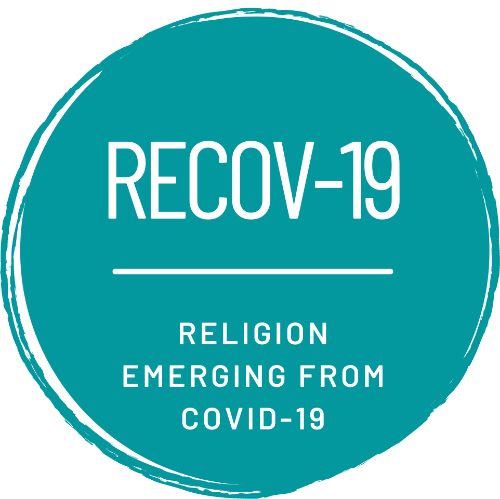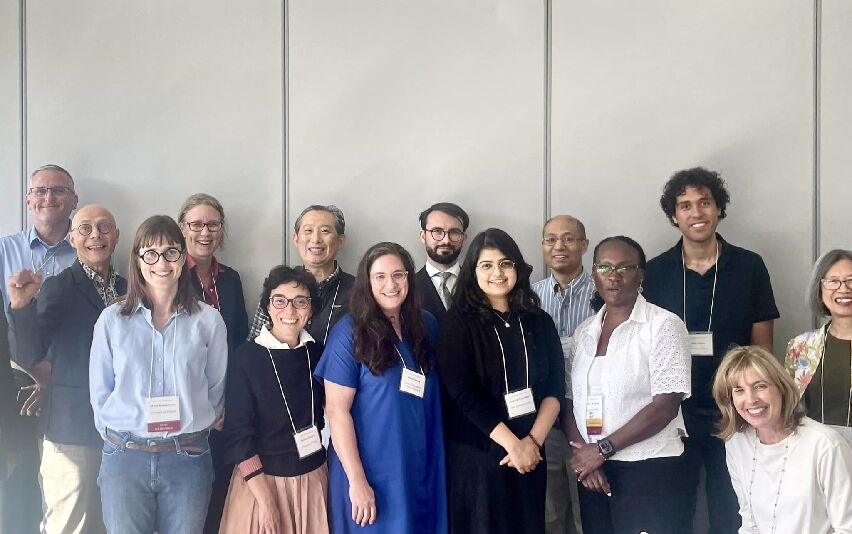On August 10th and 11th, 2004, the Association for the Sociology of Religion gathered in Montreal, Quebec (Canada), for its annual meeting. Nearly 20 religion scholars from Europe, Asia, Africa, and the Americas shared the results of their ongoing research, including various members of the Recov-19 international research team, who were at the forefront of a symposium focusing on the interactions between religious groups, medical agencies, and the state during the Covid-19 pandemic. The symposium was organized by the coinvestigator Solange Lefebvre (University of Montreal) and the sociologist Roberta Ricucci (University of Turin, Italy).
On the morning of June 10th, Gladys Ganiel (Queen’s University Belfast), Solange Lefebvre (University of Montreal) and Kerstin Radde-Antweiler (University of Bremen) presented the scope, methodology, and international and comparative perspectives of the Recov-19 project. Later that morning, Mathieu Colin (University of Montreal), Amrei Sander (University of Bremen), and Caoimhe Ní Dhónaill (Queen’s University Belfast) shared the national results of the research for Canada, Germany, Poland, and the Island of Ireland (Ireland/Northern Ireland). Marta Kołodziejska (University of Warsaw) presented results on religious actors’ use of digital media. Kerstin Radde-Antweiler also presented the results for Russia and Belarus on behalf of Victor Khroul (University of Bremen), who couldn’t attend the conference.
With the groundwork firmly laid, the Recov-19 team shared further comparative perspectives on religion and the pandemic in Canada, Germany, Poland, Ireland, and Northern Ireland. They discussed religious discourses on science, health, and the quest for the common good during the pandemic, the controversies that arose around vaccination, and the pandemic’s impact on the authority, credibility, and social relevance of churches and religious organizations in a secularized context. The comparisons spanned Catholic, Protestant, and Orthodox churches, as well as Jewish, Muslim, and minority religious or belief groups such as Jehovah’s Witnesses and the Anthroposophical Society.
The Recov-19 team also highlighted the socioreligious differences and similarities between these countries, as well as the evolution of these discourses throughout the pandemic. Several panels focused on the transformation of religious practices during and after the pandemic lockdowns, particularly the role of digital media and live streaming of rituals. At a deeper level, the team explored how religion helped believers cope with the pandemic and how the increasing use of digital media sparked theological debates about the meaning of ecclesia (church) and the “validity” of sacraments such as the Eucharist.
The Recov-19 team also engaged in discussions with other religion scholars conducting research on the interactions between Covid-19 and faith groups, benefiting from global perspectives such as the longitudinal analysis by Samirah Majumdar of the Pew Research Center, and national studies by Roberta Ricucci (Italy), Scott Thumma and Greg Smith (United States), Christophe Monnot (Switzerland), Beatric Churu and colleagues (Kenya), and Joseph Yi (South Korea).
Overall, it was a stimulating and enriching conference for the Recov-19 team, who also spent quality time together, adding a warm, human touch to this academic symposium.
Frédéric Barriault, Communication Agent, Research Chair Cultural and Religious Diversity, University of Montreal

